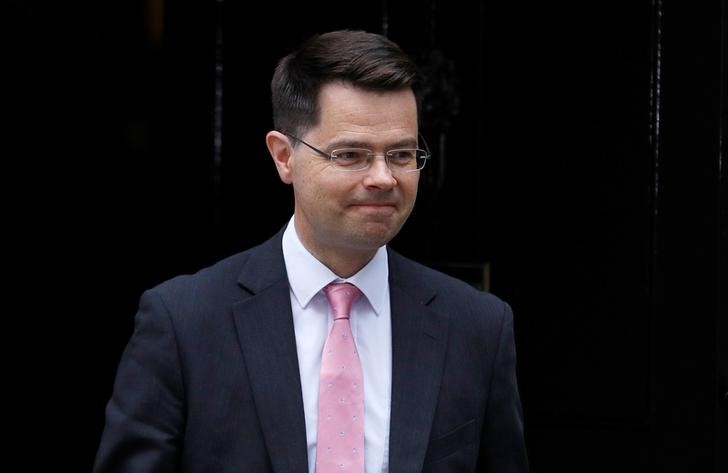By Amanda Ferguson
BELFAST (Reuters) - Northern Ireland's political parties are rapidly running out of time to restore a devolved power-sharing government, Britain's minister for the region said on Monday, as he sought to avoid a return of direct rule from London.
Irish nationalists Sinn Fein and the Democratic Unionist Party (DUP) have failed to reach agreement on reforming the devolved administration since its collapse in January, limiting Northern Ireland's influence in Brexit negotiations that could hurt it more than an other part of the United Kingdom.
Formal talks broke down in July and each has blamed the other for missing repeated deadlines.
Britain's James Brokenshire said he and Irish foreign minister Simon Coveney, who have been facilitating the talks, would continue to meet with the parties this week to establish whether there are grounds to resume formal multi-party negotiations.
Continued failure would force Britain to bypass the regional assembly and revert to direct rule from London for the first time in a decade, a move that could destabilise the political balance in the province.
"The window of opportunity to restore devolution and to form an executive is closing rapidly as we move further into the autumn and with pressures in public services already evident, the need for intervention is becoming increasingly clear," Brokenshire told a news conference.
"I'm not going to pretend that this is easy as clear differences remain, but it does remain achievable."
Both the DUP and Sinn Fein admitted there may only be a matter of weeks before Britain's government would have to step in, something neither wants. Brokenshire also has the option of calling an election, the second this year, as a means to try and break the deadlock.
DUP leader Arlene Foster said her party would be able to come to a determination "pretty quickly" as to whether Sinn Fein wants to go back into government.
Sinn Fein's Northern Ireland leader Michelle O'Neill reiterated that it needed a full implementation of earlier agreements between the parties -- improved rights for Irish language speakers and the legalisation of same-sex marriage -- before considering returning to the local executive.
An added complication is that Britain's minority Conservative government is being propped up by a support agreement with the DUP.

No one predicts a return to the sectarian violence in which 3,600 died over three decades before a 1998 peace deal that mandated the compulsory coalition between pro-British protestants and nationalists who want Northern Ireland to join a united Ireland.